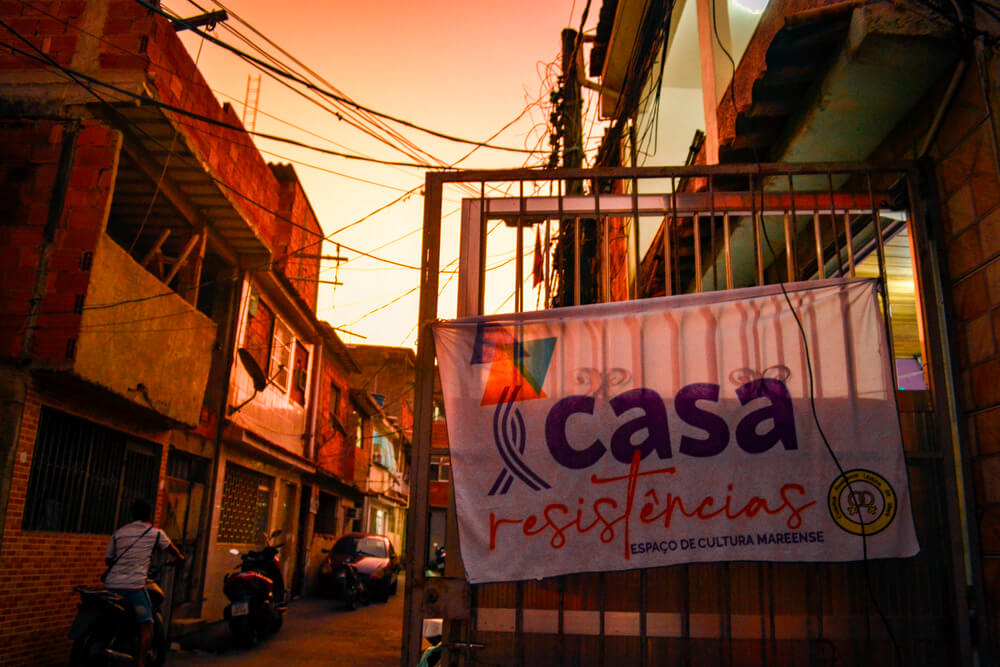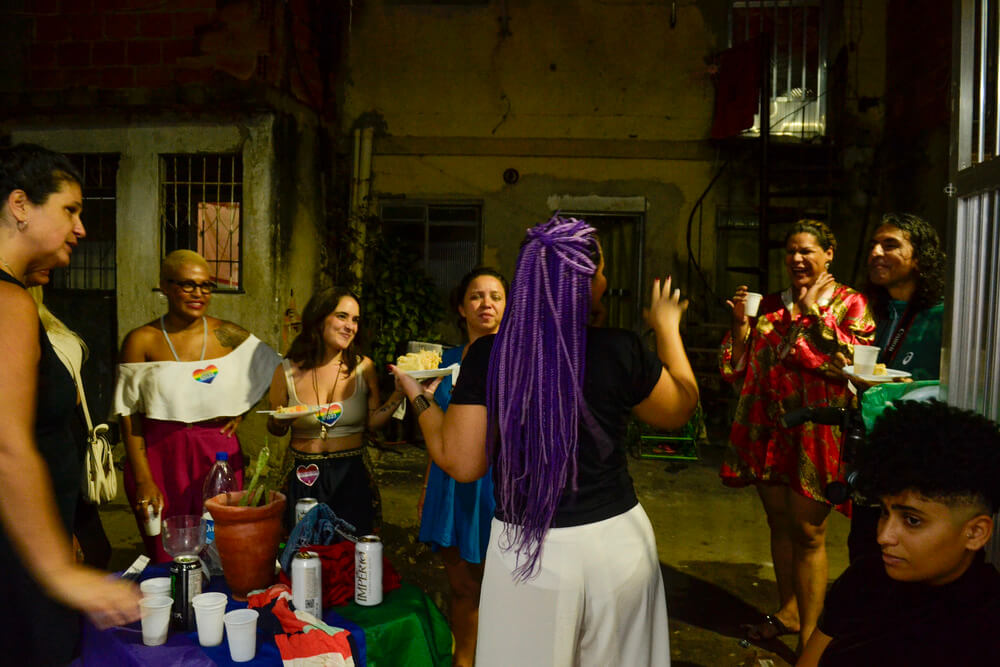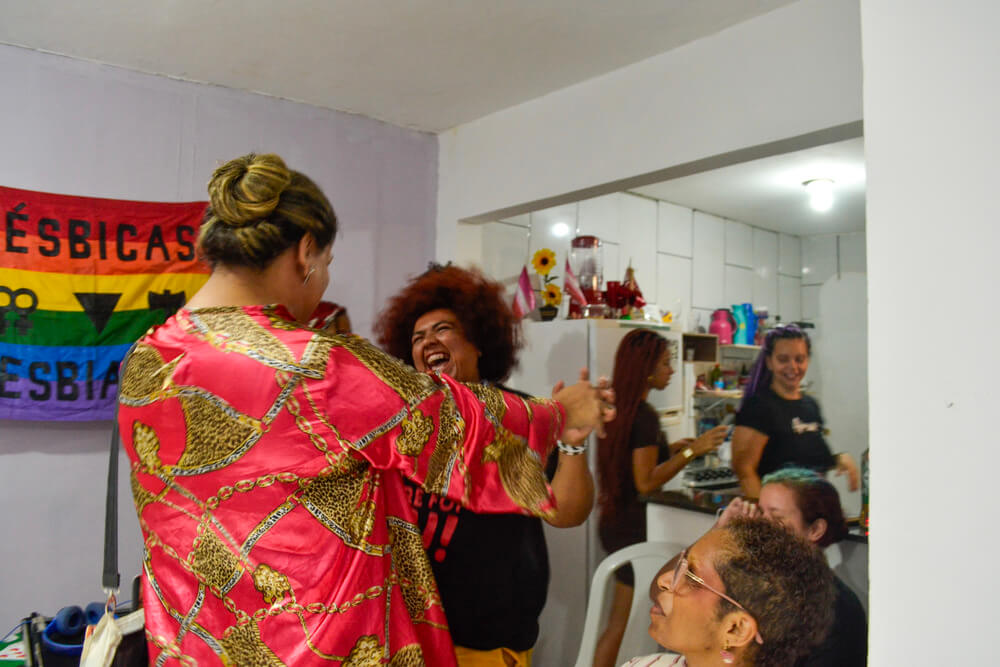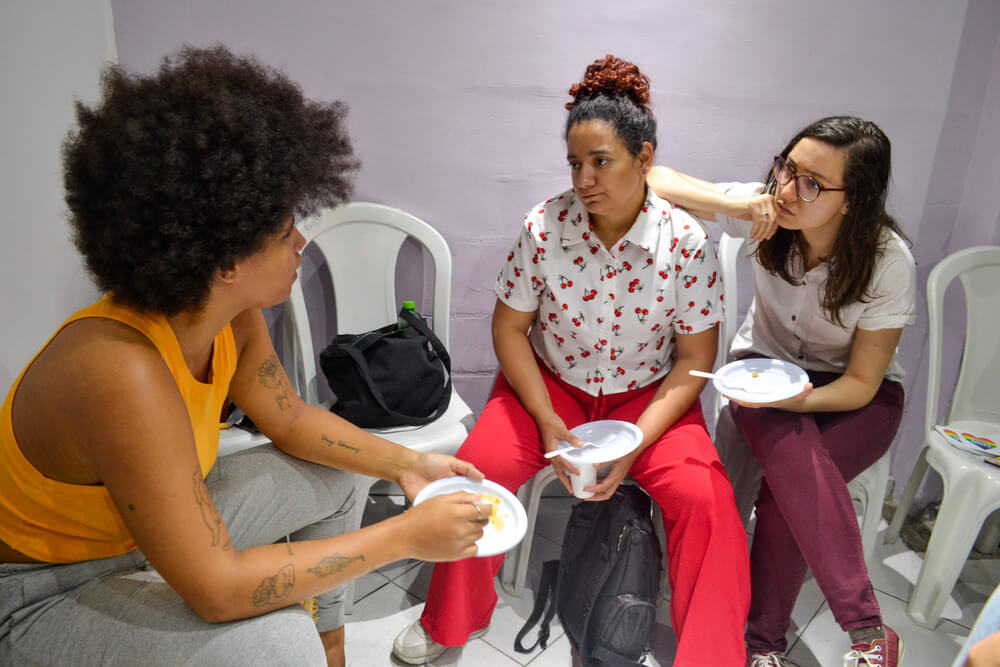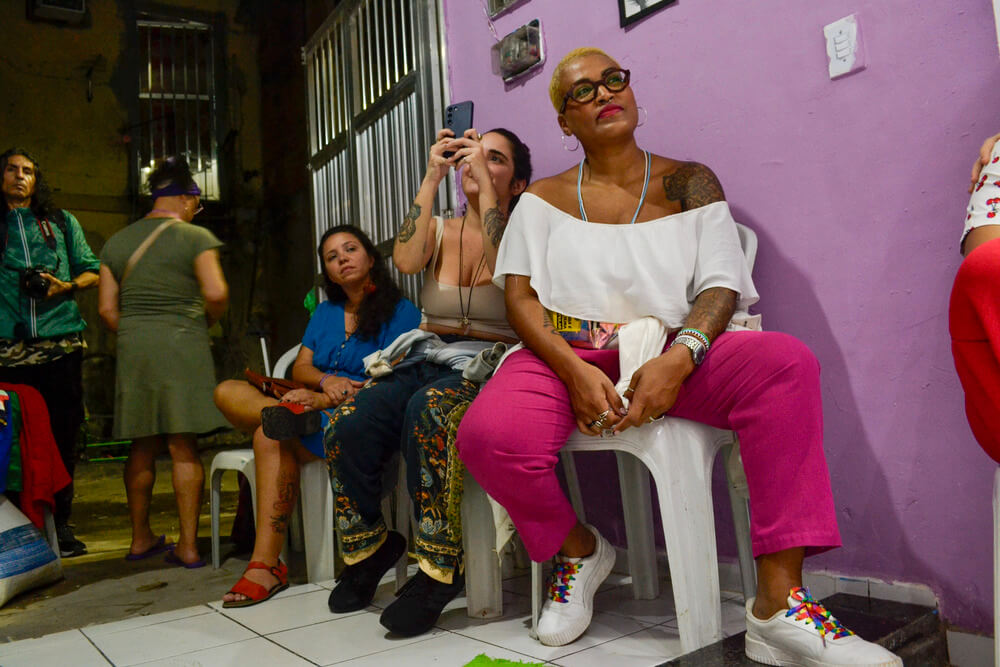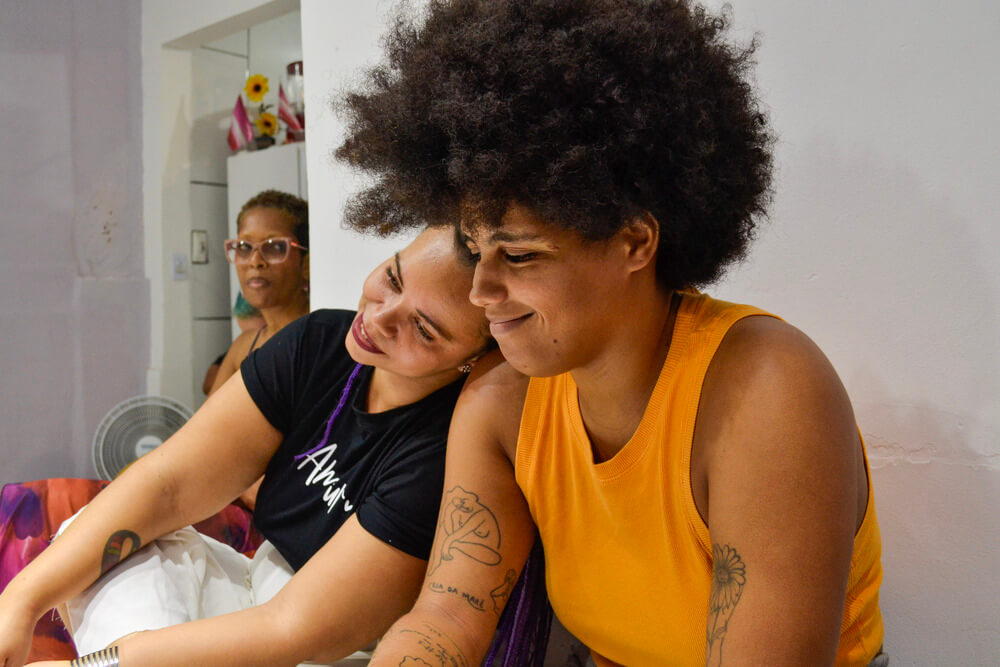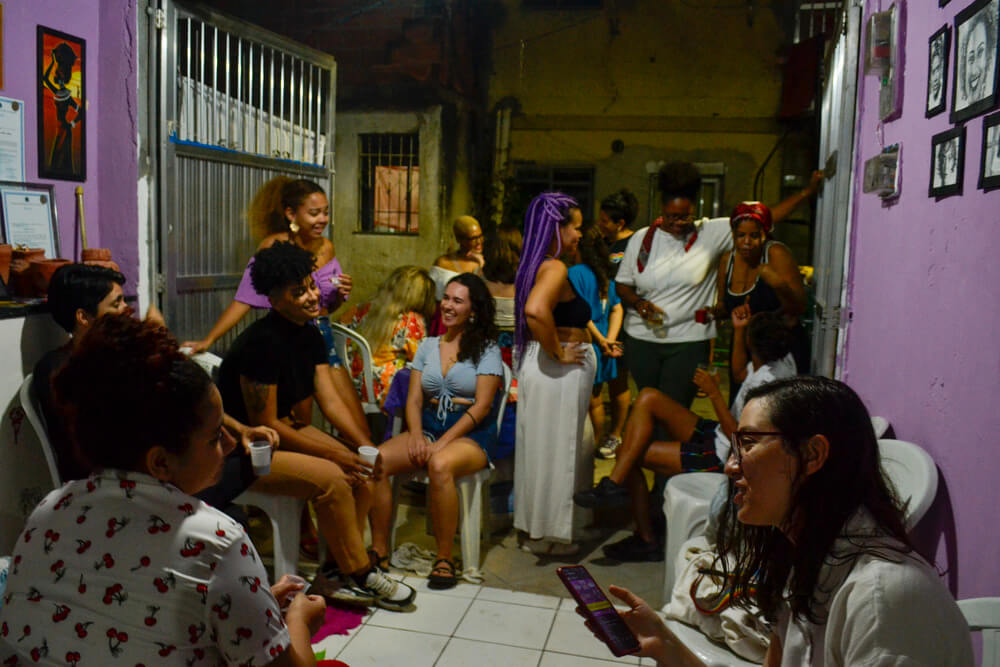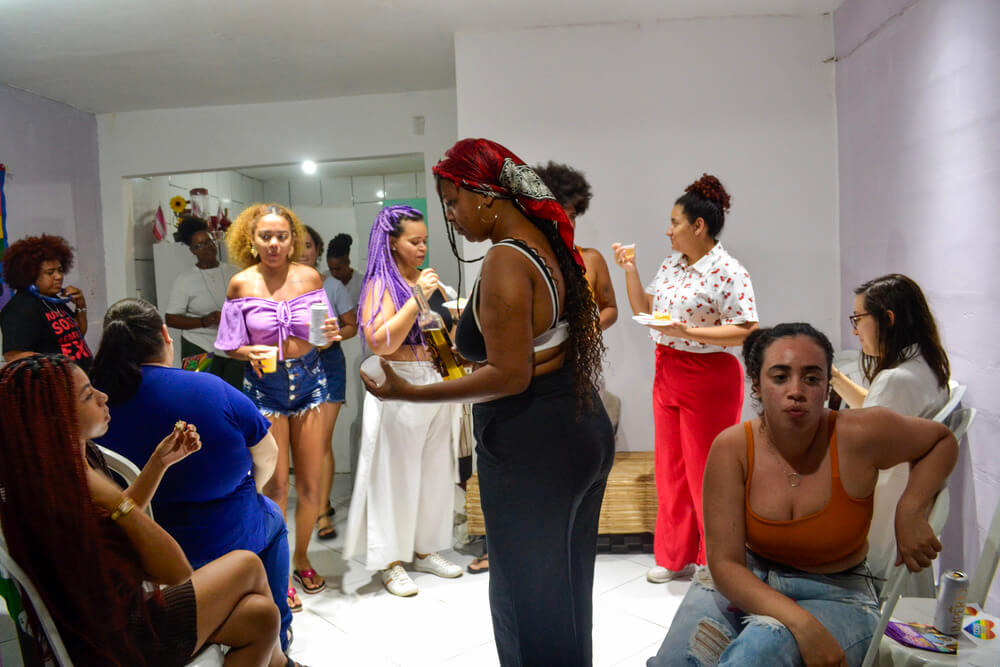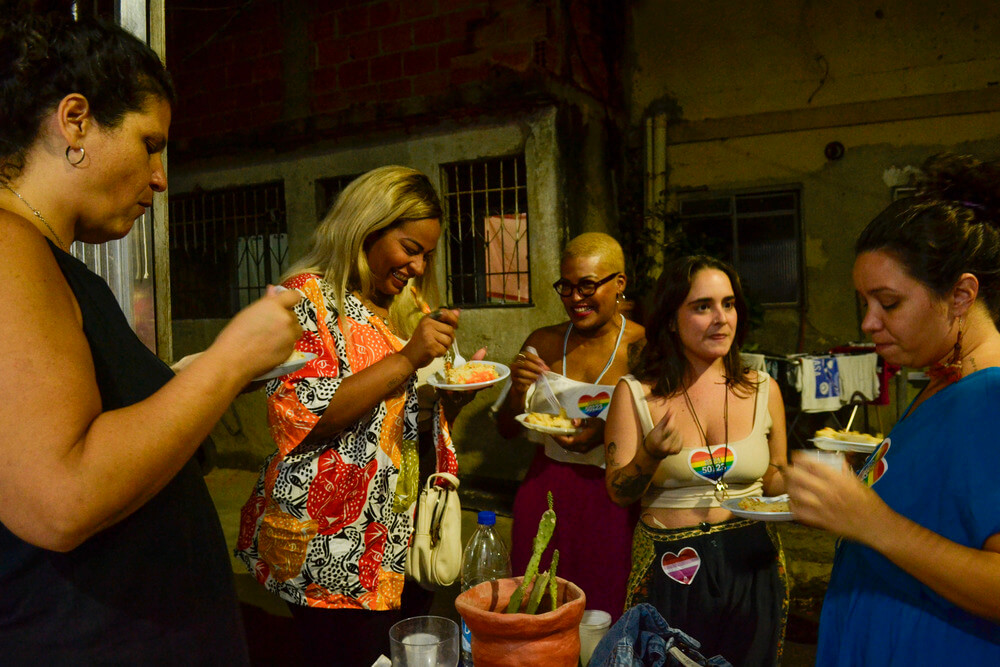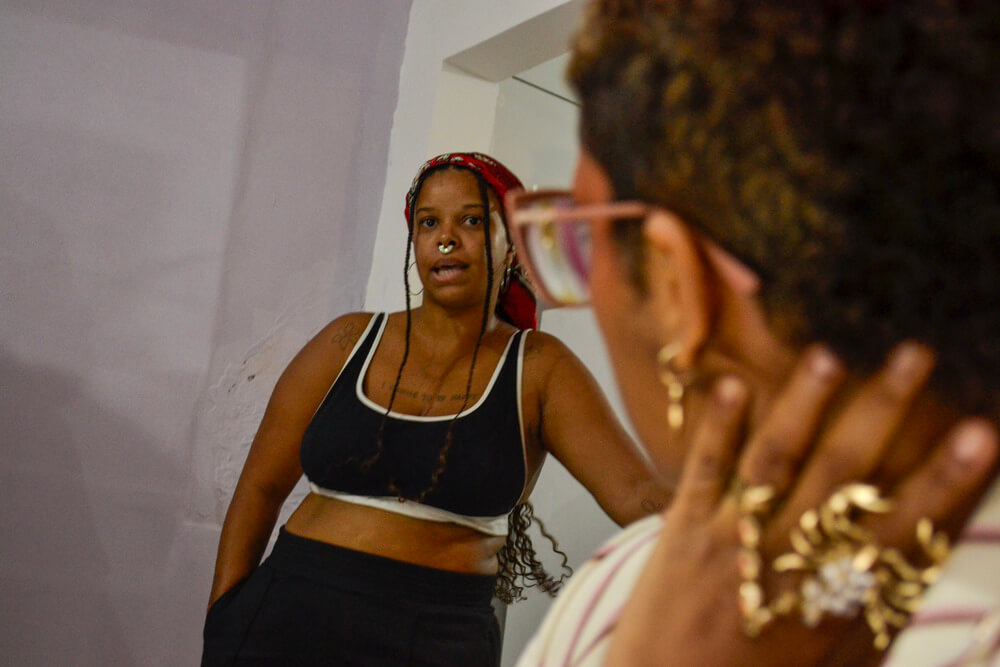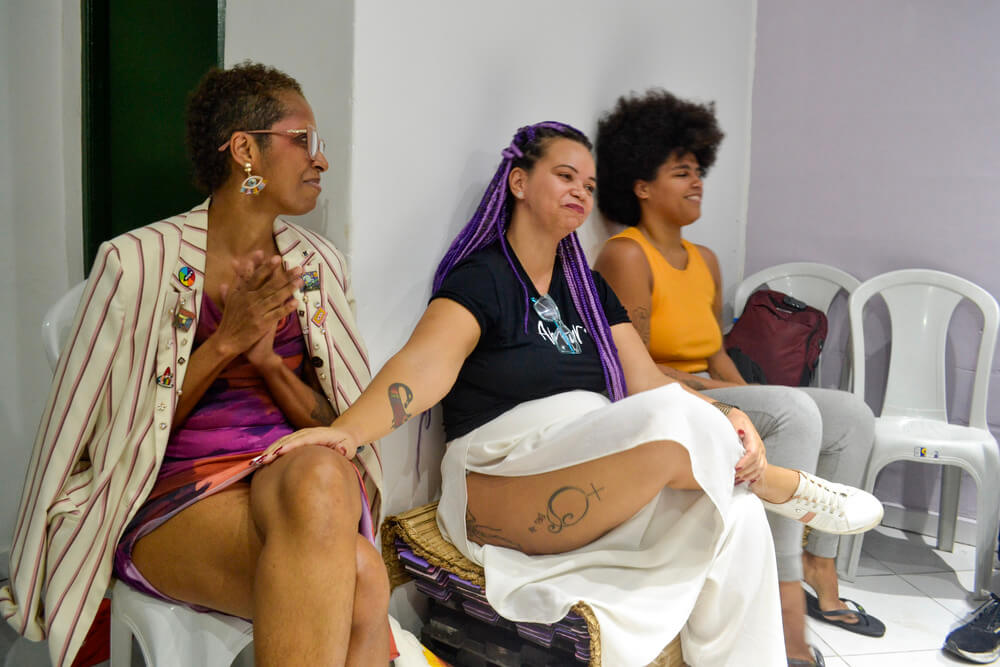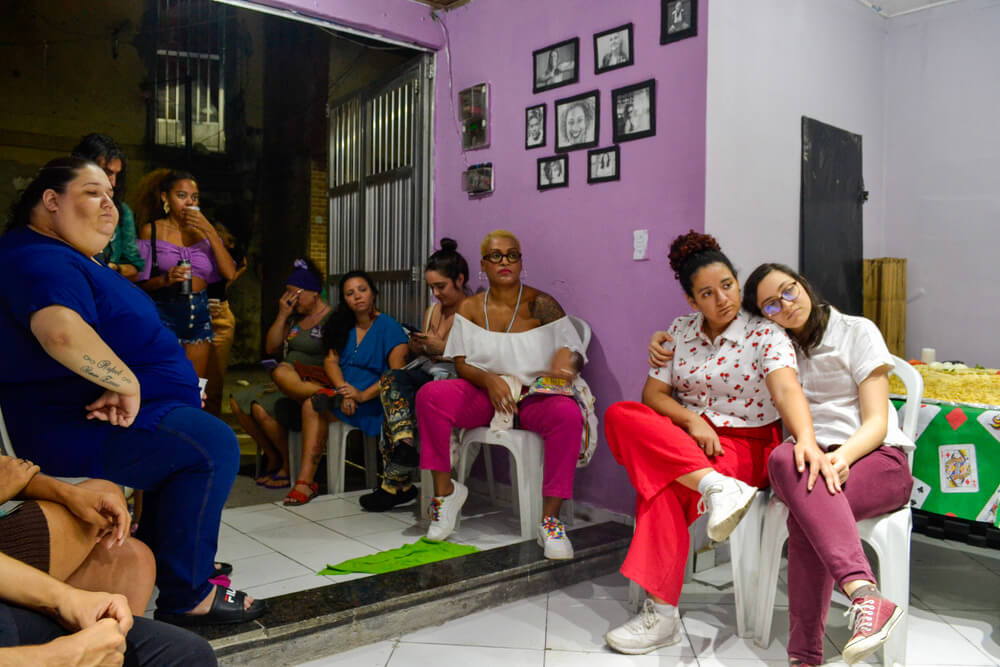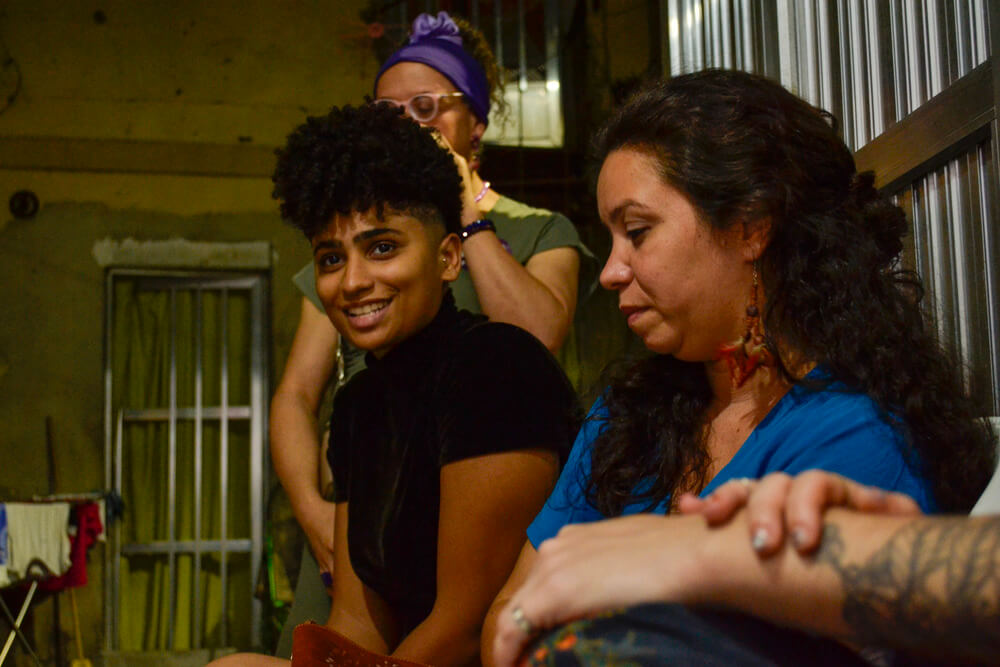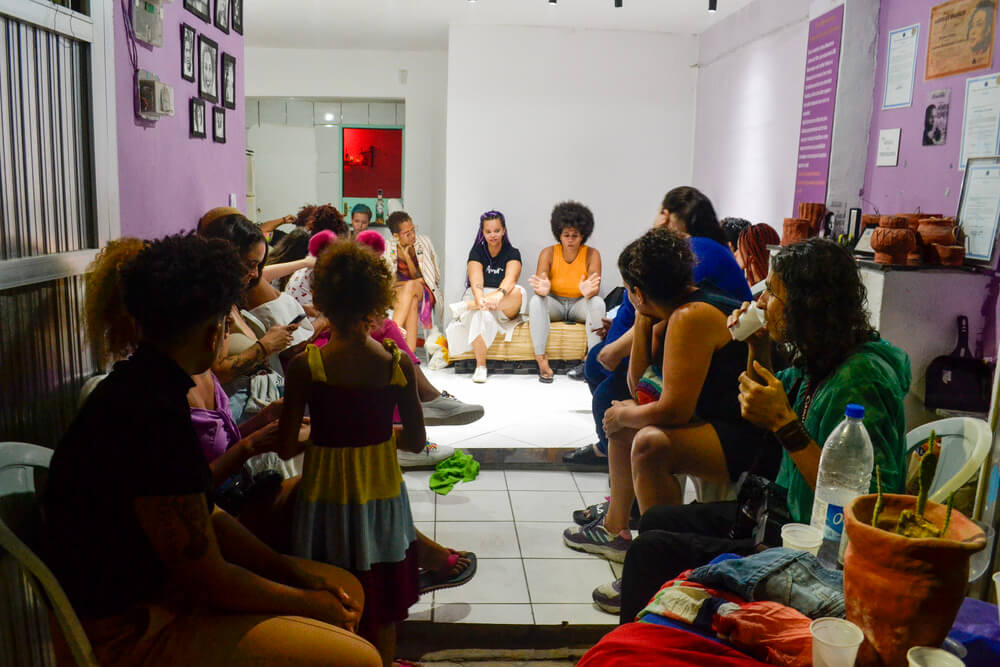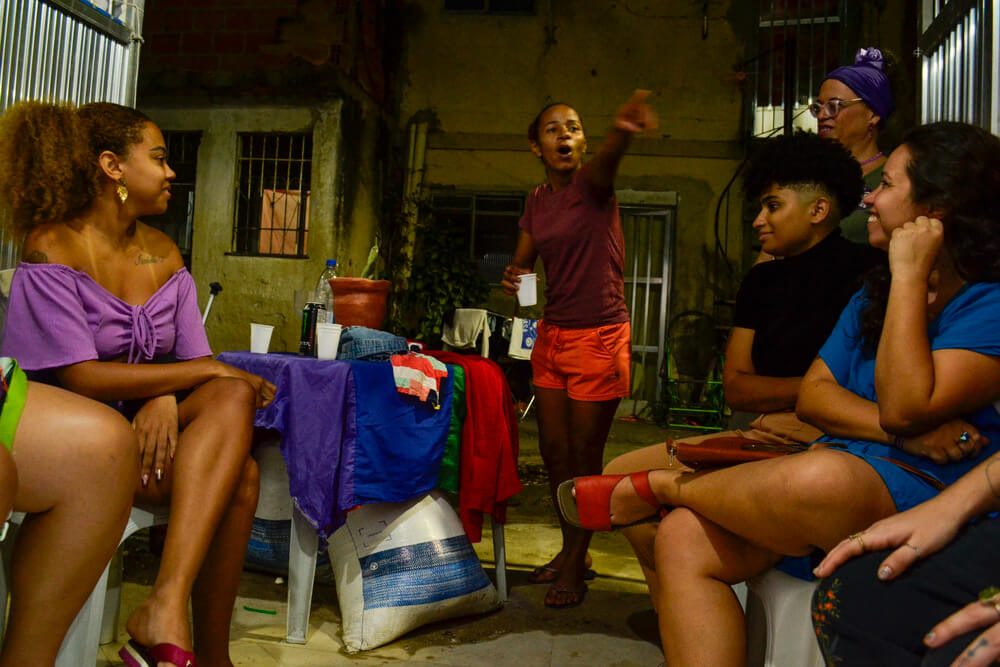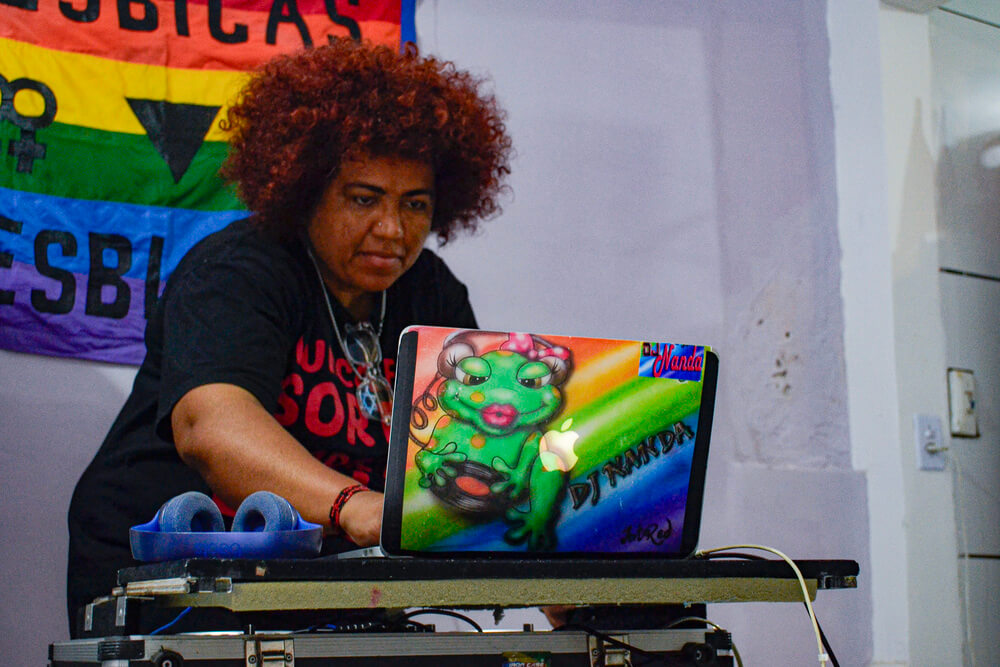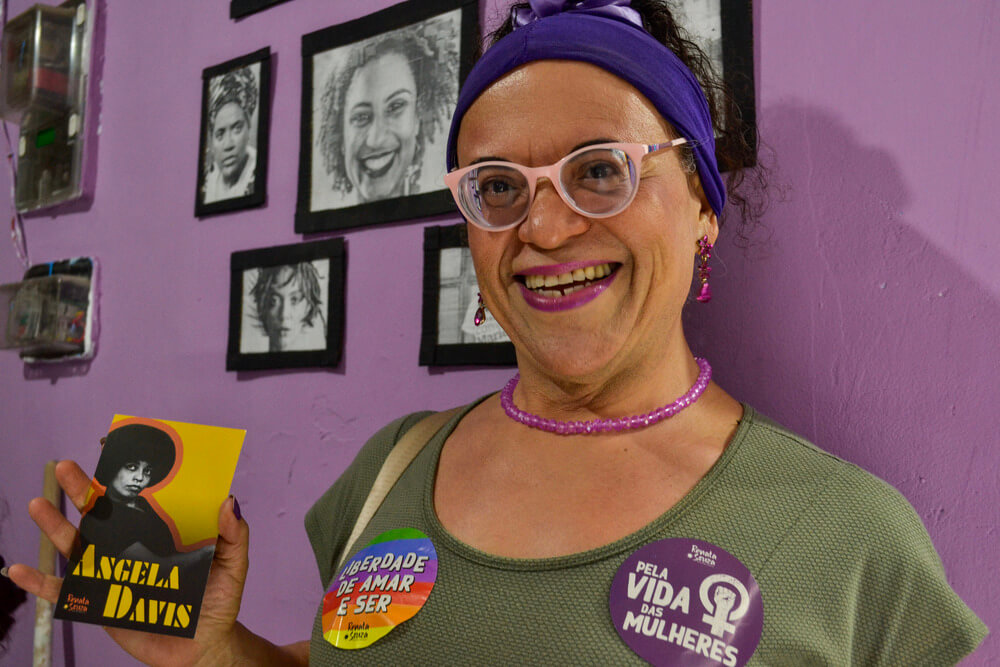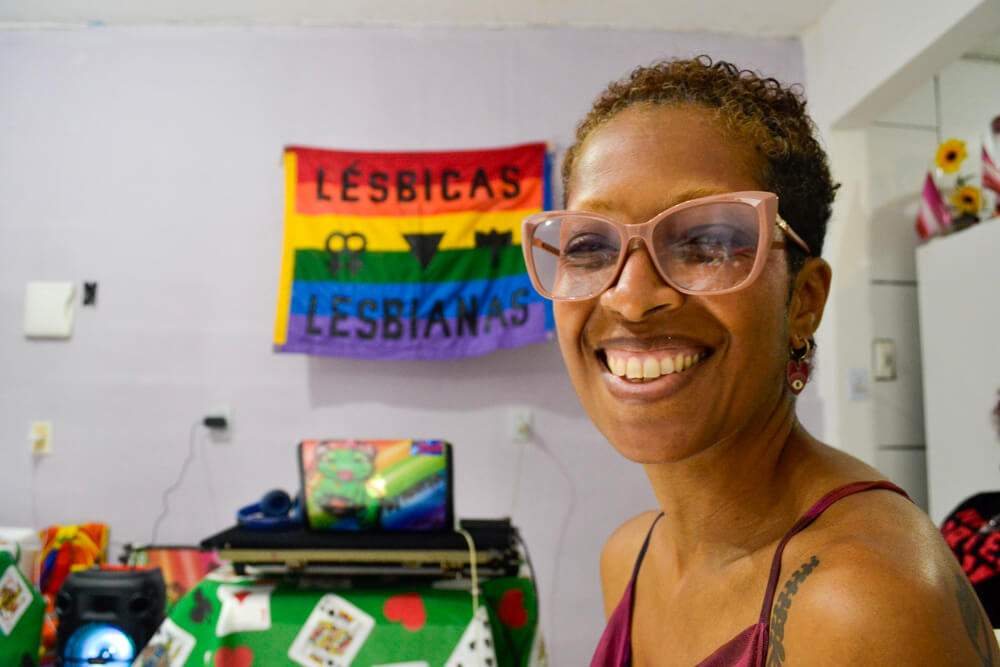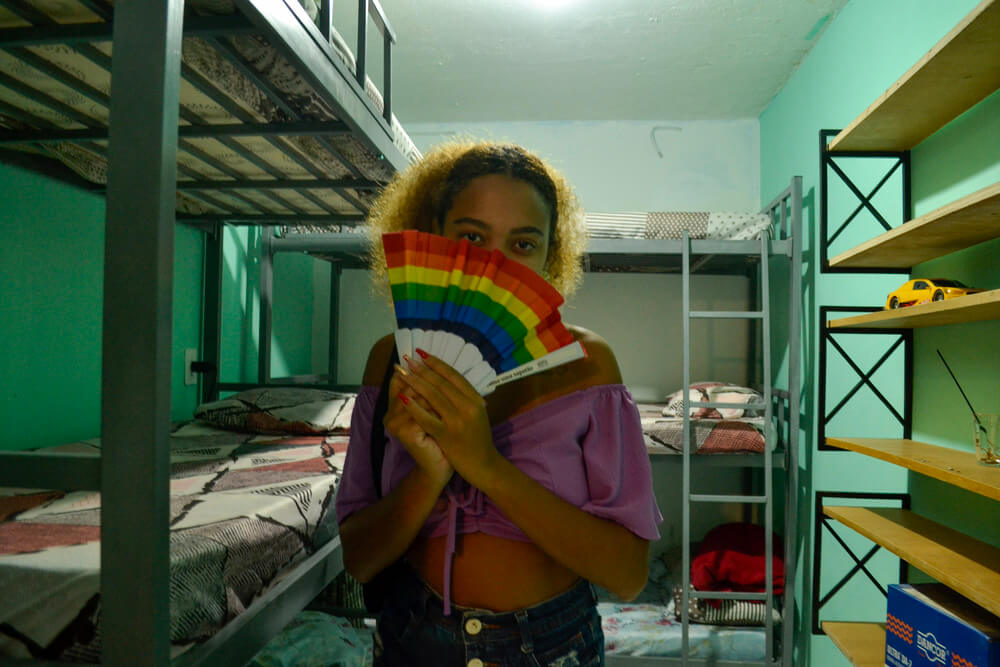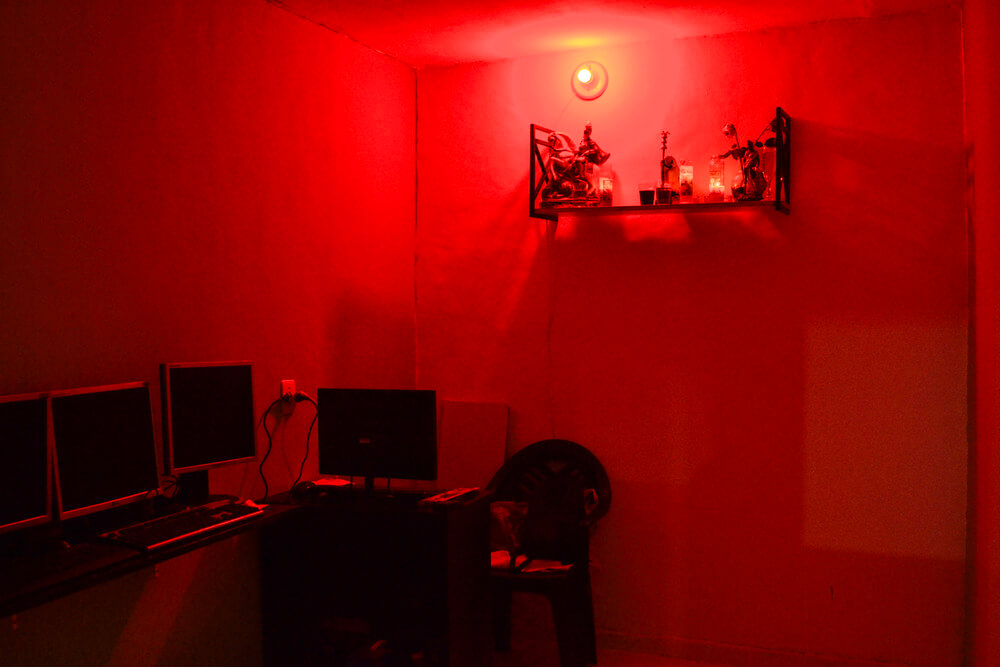What is this Ground On Which I Step? Work, Care, Survival at the Casa Resistências Shelter for LBT Women from the Maré Favelas
Beatriz Virgínia Gomes Belmiro e Kimberly Veiga (text)
Suellen Cloud (photography)
Casa Resistências e Imagens do Povo (collaboration)
I dream of a place between your breasts
to build my house like a haven
where I plant crops
in your body
an endless harvest
where the commonest rock
is moonstone and ebony opal
giving milk to all of my hungers
and your night comes down upon me
like a nurturing rain.
Audre Lorde. “Woman”.
In: The Black Unicorn: Poems.
New York: WW Norton, 1995.
Knowing where you step is crucial for those of us who are denied space on a daily basis. Home isn’t always a safe space; our blood families often push us out, and we have to seek refuge in other bonds, in each other, rebuilding our sense of affection, care, and shelter. This is how Casa Resistências [Home/House of Resistance] was born, a cultural space that offers residential care for lesbian and bisexual women (cis and trans) from favelas, who, in many cases, are no longer welcome in their homes due to their sexuality, domestic violence, or other situations of social vulnerability.
The “Casa” opened in April 2022 and is currently located in Salsa e Merengue, one of sixteen favelas in the Maré complex. In addition to offering temporary housing, psychosocial support, food security, and employment initiatives, the Casa aims to provide a safe space for LBT women living in favelas. The care we provide is based on anti-asylum mental health practices, making it a pioneering project of this kind of model of care within a Brazilian favela.
With the Casa now in its third year of operation, we have already welcomed 36 women, mostly Black women, some of whom have spent time living with us and others who have simply requested psychosocial support. Our support takes place through role play, group experiences, and psychodramatic therapies, where these women have new opportunities to perceive and position themselves in the world and shape new forms of self-existence.
Our work is organized into five coordination sectors: employment, reception, finance, art & culture, and knowledge production, together with general coordination. All of the coordination sectors are led by lesbian and bisexual women, most of them Black, living in the favela or other surrounding peripheral areas. All of this reinforces the Casa’s sense of care, we are providers, but also, we ourselves often need care, dealing with the impact of life experiences on our own bodies.
Reflecting on the ground we walk on, besides reconnecting with nature and reclaiming our ancestral heritage, also involves considering that this ground, which we care for and which cares for us constantly, is also the result of a lot of effort and collective action. Until the 1980s, much of Maré’s favelas consisted of stilt houses, houses built on wooden stilts, which adapted to the rising and falling tides. Maré residents built their homes themselves and made their floors collaboratively and collectively. Reflecting on the ground we walk on also means rediscovering this history, remembering that this ground was once covered by the sea, bathed by the waters of Guanabara Bay.
It is not our place here to make any value judgments about human actions on nature, but rather to value this ground. Built despite limited access to sophisticated technologies and materials, it is a ground that is home to many Maré residents, and today welcomes us to care and be cared for. So we cannot imagine any other form of care than one that is grounded in its locality, attentive to the effects that territories have on each person and to the potential of each person-as-territory.
Especial thanks: Bia Adura, Dayana Gusmão, Erika Tambke, Susan Thomson, and the organizations, Casa Resistências and Imagens do Povo.
***
Beatriz Virgínia Gomes Belmiro comes from the Maré Complex, she has a BA in history from UERJ (Rio de Janeiro State University of Rio de Janeiro) and a masters degree in History of Science and Health from Casa de Oswaldo Cruz/FIOCRUZ where she is also a doctoral candidate. Contact: beatrizvirginia9@gmail.com
Kimberly Veiga is a public health psychologist and psychodramatist. She is the Reception Coordinator at Casa Resistências and a researcher of territorialities and intersectionalities. Contact: @kimberlyveiga.psi
Suellen Cloud Atlas is a photographer, film club member, and cultural producer focused on working in the peripheries. A graduate of the Imagens do Povo School of Popular Photography, she works in the Maré region as media director for Real Maré Futebol Clube and also in the Port Zone with the Favela Cineclube project. She currently dedicates herself to photographic research, based on “fotografia do bem querer” (good will photography), seeking the visual and conceptual humanization of the favela and peripheral territories. Contact: @suellencloud
Casa Resistências, opened in 2022, is a cultural space in Maré that offers residential shelter for lesbian and bisexual women (cis and trans). Instagram: @resistencialesbica Email: casaresistenciasmare@gmail.com Team phone number: +55 21 98863-6918
Imagens do Povo captures the daily life of favelas through a critical lens that takes into account respect for human rights and local culture. Website: imagensdopovo.org.br Instagram: @imagensdopovooficial


